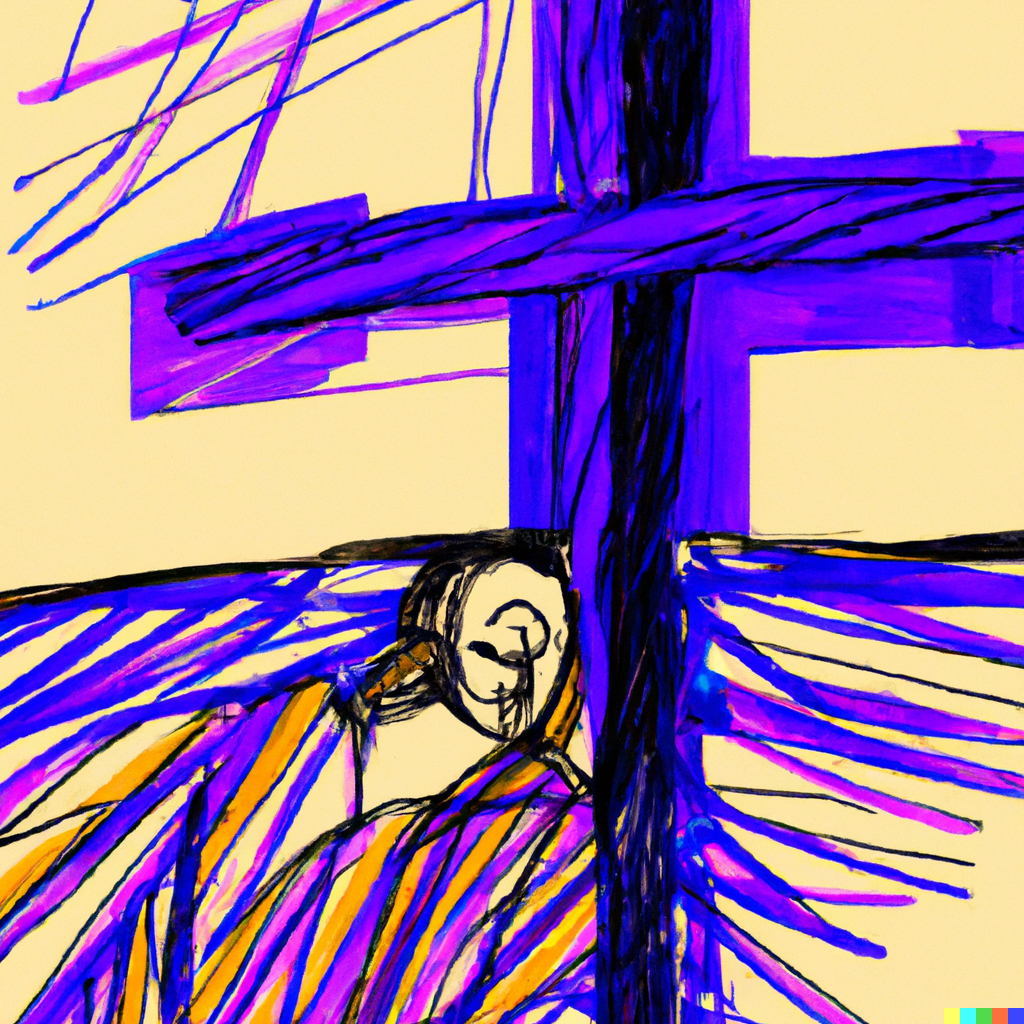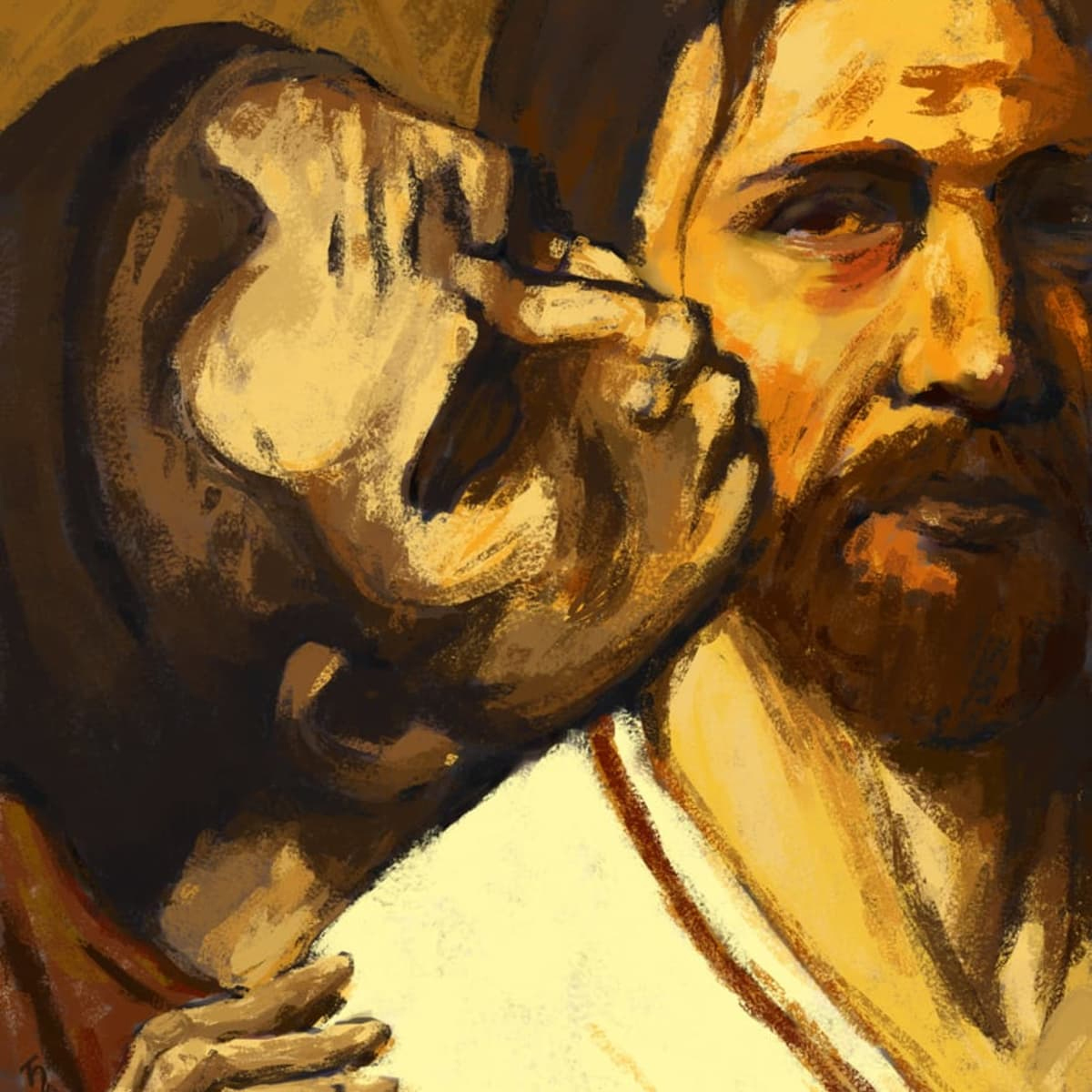Christian Art | Prayer With Jesus | Psalms | Praise For Vindication And Vengeance | King David As A Boy | Audio KJV | Love Revealed By Jesus Christ | King James Audio Bible
Psalm 109 | King James Audio Bible
YouTube: Psalm 109 | KJV | King James Version | Audio Bible | Word Aloud
Psalm 109 is unique and challenging. This psalm is often classified as one of the ‘imprecatory’ psalms due to its intense language of cursing and calls for judgment against the psalmist’s enemies. The psalm stands out for its raw emotion and the stark contrast it presents to the more familiar themes of praise and worship found in other psalms.
Psalm 109 is a complex and challenging text that confronts readers with rawness of human emotion in the face of betrayal and injustice. Its intense language of cursing and appeal for divine retribution stands in stark contrast to more benign themes typically associated with biblical texts. This psalm forces Christians to confront difficult questions about justice, retribution, and the nature of our appeals to God in times of distress. The psalm invites a deeper engagement with a range of human emotions and experiences reflected in biblical narrative and challenges Christians to consider how these ancient texts speak to contemporary issues of justice and human suffering.
Authorship And Historical Context
Traditionally attributed to King David, Psalm 109 reflects a period of great personal distress and conflict. The exact historical context is not clear, but it likely originates from a time when David, or the psalmist, faced significant opposition and betrayal, possibly during the rebellions he experienced during his reign. The psalm’s intense language suggests a situation of extreme desperation and injustice.
Structure And Content
The psalm can be divided into several sections. It begins with an appeal to God not to remain silent in the face of the psalmist’s plight. The following verses (2-5) describe the deceit and betrayal faced by the psalmist. This is followed by a lengthy section (6-20) where curses are pronounced against the wicked oppressor. These curses are graphic and encompass every aspect of the oppressor’s life, including his family and future generations. The final section (21-31) shifts back to a plea for God’s intervention and ends with a vow of praise and recognition of God’s justice and protection of the poor and needy.
Themes And Interpretation
- Justice And Retribution: A central theme is the desire for justice and retribution against wrongdoing. The psalmist appeals to God as the ultimate judge to right the wrongs and punish the oppressor.
- Human Emotion And Suffering: The psalm gives voice to deep emotions of anger, betrayal, and despair. It is a candid expression of the human response to injustice and the desire for vindication.
- Divine Justice And Protection: Despite the harsh language of the curses, the psalm ultimately reflects a belief in God’s justice and protection. The psalmist’s turn to God for help underlines a trust in divine justice over human retribution.
- Ethical And Theological Challenges: The imprecatory nature of the psalm poses significant ethical and theological challenges. It raises questions about the nature of justice, the appropriateness of cursing in scripture, and how to reconcile such passages with the broader biblical themes of love, forgiveness, and enemy-love.
Contemporary Relevance
While Psalm 109 is not frequently cited in contemporary religious practice due to its difficult content, it remains relevant for several reasons. Firstly, the psalm acknowledges range of human emotions, including anger and desire for revenge, as part of the religious experience. Secondly, the psalm opens up discussions about the nature of justice and the human longing for vindication in the face of suffering and evil. Thirdly, the psalm challenges readers to grapple with the ethical and theological tensions present in the text, prompting deeper reflection on the nature of divine and human justice.

Psalm 109 | King James Audio Bible
Hold not thy peace, O God of my praise;
For the mouth of the wicked and the mouth of the deceitful are opened against me: they have spoken against me with a lying tongue.
They compassed me about also with words of hatred; and fought against me without a cause.
For my love they are my adversaries: but I give myself unto prayer.
And they have rewarded me evil for good, and hatred for my love.
Set thou a wicked man over him: and let Satan stand at his right hand.
When he shall be judged, let him be condemned: and let his prayer become sin.
Let his days be few; and let another take his office.
Let his children be fatherless, and his wife a widow.
Let his children be continually vagabonds, and beg: let them seek their bread also out of their desolate places.
Let the extortioner catch all that he hath; and let the strangers spoil his labour.
Let there be none to extend mercy unto him: neither let there be any to favour his fatherless children.
Let his posterity be cut off; and in the generation following let their name be blotted out.
Let the iniquity of his fathers be remembered with the Lord; and let not the sin of his mother be blotted out.
Let them be before the Lord continually, that he may cut off the memory of them from the earth.
Because that he remembered not to shew mercy, but persecuted the poor and needy man, that he might even slay the broken in heart.
As he loved cursing, so let it come unto him: as he delighted not in blessing, so let it be far from him.
As he clothed himself with cursing like as with his garment, so let it come into his bowels like water, and like oil into his bones.
Let it be unto him as the garment which covereth him, and for a girdle wherewith he is girded continually.
Let this be the reward of mine adversaries from the Lord, and of them that speak evil against my soul.
But do thou for me, O God the Lord, for thy name’s sake: because thy mercy is good, deliver thou me.
For I am poor and needy, and my heart is wounded within me.
I am gone like the shadow when it declineth: I am tossed up and down as the locust.
My knees are weak through fasting; and my flesh faileth of fatness.
I became also a reproach unto them: when they looked upon me they shaked their heads.
Help me, O Lord my God: O save me according to thy mercy:
That they may know that this is thy hand; that thou, Lord, hast done it.
Let them curse, but bless thou: when they arise, let them be ashamed; but let thy servant rejoice.
Let mine adversaries be clothed with shame, and let them cover themselves with their own confusion, as with a mantle.
I will greatly praise the Lord with my mouth; yea, I will praise him among the multitude.
For he shall stand at the right hand of the poor, to save him from those that condemn his soul.
Psalm 109 | King James Audio Bible
- Appeal For Divine Justice: The psalmist calls upon God to deliver justice in the face of false accusations and betrayal.
- Experience Of Betrayal And Deceit: It vividly portrays the pain and anger of being betrayed by friends and surrounded by deceitful enemies.
- Imprecatory Prayer: The psalm is known for its imprecatory content, where the psalmist invokes curses upon his adversaries.
- Human Emotion And Suffering: It expresses deep emotional anguish, including feelings of abandonment and despair, reflecting the human response to injustice.
- Divine Vindication And Protection: The psalmist shows trust in God’s ability to vindicate and protect the oppressed.
- Ethical And Theological Tension: The psalm presents a challenge in reconciling its harsh language with broader biblical themes of love, forgiveness, and mercy.
- The Righteousness Of God: Despite the curses, the psalm ultimately acknowledges God’s righteousness and justice.
- Personal Integrity And Innocence: The psalmist asserts his integrity and innocence in contrast to the wickedness of his enemies.
- Contrast Between The Wicked And The Righteous: The psalm contrasts the fate of the wicked with the protection accorded to the righteous by God.
- Role of God as Judge: It highlights God’s role as the ultimate judge who is capable of delivering the appropriate judgment against the wicked.
Psalm 109 | King James Audio Bible
On November 26, 2003, Pope John Paul II referred to Psalm 110[109] as ‘one of the most famous Psalms in Christian history,’ highlighting its frequent citation in the New Testament and its evolution from ‘a Davidic hymn of royal praise into a Messianic Psalm’. He noted the Psalm’s liturgical importance, particularly in Sunday Vespers, and mentioned its themes of the Jewish king’s military conquests and judgment of nations. The Pope explained that the Psalm ‘is very close in tone to the so-called ‘Cursing Psalms’’ and describes the king ‘crushing his adversaries and judging the nations’.
In an audience on August 18, 2004, Pope John Paul II continued his discussion on Psalm 110[109], emphasizing its Christological interpretation. He mentioned that the Psalm ‘becomes a luminous hymn that the Christian Liturgy raises to the Risen One on the festive day that commemorates the Passover of the Lord’.
Pope John Paul II discussed the Psalm’s portrayal of the consecrated king, linking it to Jesus Christ as ‘the true Son of God’ and ‘the model of a perfect, supreme priesthood.’ The Pope described how the Psalm anticipates Christ, saying, ‘This Psalm fits into the context of these promises; it foretells in clear and explicit terms the coming of our Lord and Saviour Jesus Christ.’
For more information and the full context of Pope John Paul II’s remarks, you can visit the Vatican’s official website:








